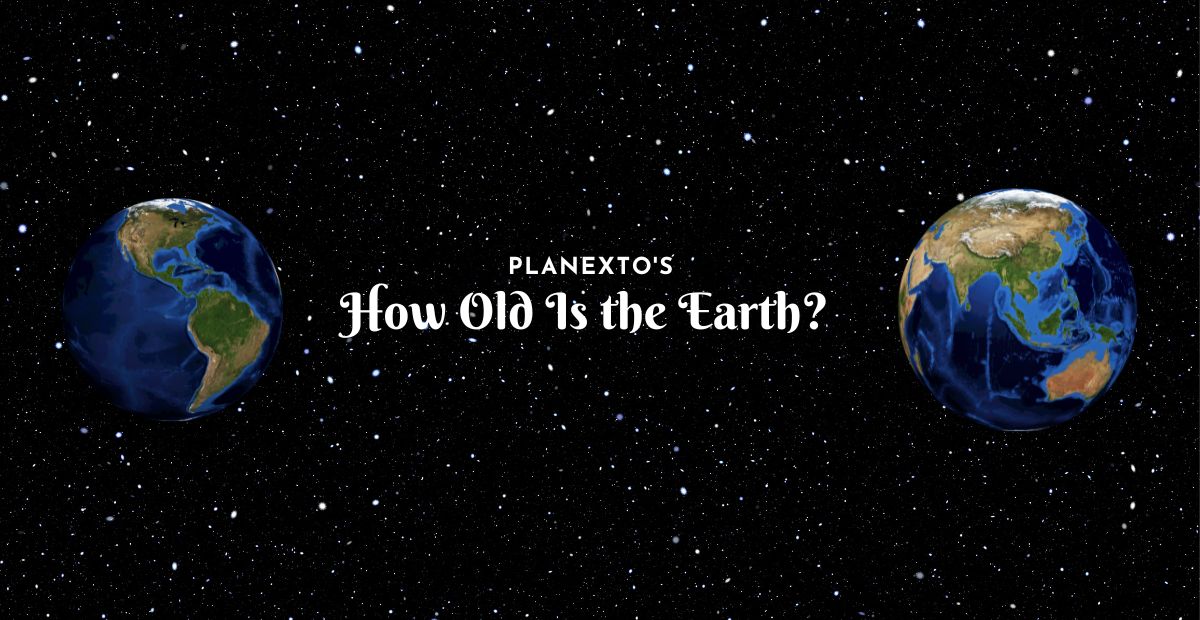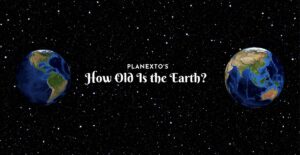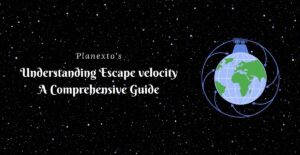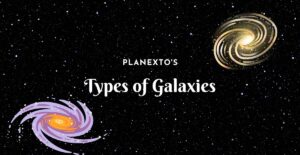Introduction
Get ready for a cosmic adventure into the age-old question: “How old is the Earth?” Ever wondered about the age of our incredible planet? It’s like diving into the ultimate time capsule! So, let’s embark on a journey through Earth’s epic timeline and discover just how many candles would be on its birthday cake if it had one.
How Old Is the Earth?
Centuries ago, diverse cultures ventured to estimate Earth’s age based on religious scriptures, folklore, and myths. Western scholars did not begin to tackle this subject systematically until the 17th century. Archbishop James Ussher, for instance, famously calculated Earth’s age using the Bible, pinpointing its creation to the evening before October 23, 4004 BCE.
The Human Connection
Cultural Perspectives: Earth’s Age Across Time and Civilization Examine how different cultures and civilizations perceived the Earth’s age throughout history. From mythologies to ancient texts, witness the diverse ways humanity has grappled with the concept of time and the age of our planet.
Historical Milestones: Pioneering Insights into Earth’s Age Journey through the annals of scientific history, exploring the milestones that shaped our understanding of the Earth’s age. Meet the trailblazing scientists whose work paved the way for modern geological and astronomical revelations.

The Geological Revolution
Leading pioneers such as James Hutton and Charles Lyell contributed to the formal discipline of geology’s emergence in the 18th and 19th centuries. Hutton’s principle of uniformitarianism, emphasizing the enduring processes shaping the Earth, laid the foundation for comprehending the planet’s vast age.
Celestial Clockwork: Earth’s Relationship with the Cosmos
Peer into the cosmic ballet that dictates the Earth’s journey around the sun. Discover how astronomical phenomena contribute to our understanding of the Earth’s age, showcasing the harmonious interplay between celestial bodies.
Ancient Rocks Speak: Clues from the Earth’s Crust
Embark on a geological expedition as we decipher the messages embedded in ancient rocks. Learn how scientists glean information about the Earth’s age from the layers beneath our feet.

Stratigraphy and Fossils
Geologists soon unearthed the Earth’s stratigraphic layers, each holding a treasure trove of fossils. William Smith’s principle of faunal succession enabled scientists to correlate rock layers based on the fossil types they contained, providing a means to estimate relative ages.
Radiometric Dating Unveils Earth’s True Chronicle
The 20th century ushered in a breakthrough in determining Earth’s absolute age with the advent of radiometric dating. Visionaries like Ernest Rutherford and Frederick Soddy delved into the intricacies of radioactive decay. By measuring parent-to-daughter isotope ratios in rocks and minerals, scientists could unravel the time elapsed since their formation.
Willard Libby’s discovery of radiocarbon dating in the 1940s marked a pivotal moment, allowing researchers to date organic materials up to around 50,000 years. This innovation became an invaluable tool for archaeologists and anthropologists studying human history.

The Present Consensus
Through various radiometric dating methods, the current consensus on Earth’s age is approximately 4.54 billion years. This agreement stems from the convergence of evidence from diverse dating techniques such as uranium-lead, potassium-argon, and rubidium-strontium dating.
Conclusion
The pursuit of Earth’s age has been an odyssey characterized by inquisitiveness, inventiveness, and scientific collaboration. From early speculations rooted in religious beliefs to the transformative discoveries of geology and radiometric dating, our comprehension of Earth’s age has undergone a remarkable evolution. Today, with a consensus around the 4.54 billion-year timeframe, we stand in awe of the vast geological timescale that has molded our planet, fostering an environment for life to flourish.
More info on earth’s age click here: National Geographic
FAQs
Q: How Accurate is Radiometric Dating in Determining Earth’s Age?
A: Radiometric dating is a cornerstone in estimating the Earth’s age, but how accurate is it? Uncover the precision and limitations of this widely used method.
Q: Can Cultural Beliefs Influence Perceptions of Earth’s Age?
A: Explore the intriguing intersection of culture and scientific understanding. Can cultural beliefs impact how societies perceive the age of the Earth?
Q: Are There Controversies Surrounding Earth’s Age?
A: Dive into the controversies that occasionally stir the scientific community. From debates on dating methods to alternate theories, discover the complexities that keep the question alive.
Q: What Role Does Climate Change Play in Determining Earth’s Age?
A: Examine the correlation between climate change and Earth’s age. How do shifts in climate contribute to our understanding of the planet’s historical timeline?
Q: How Has Technology Advanced Our Understanding of Earth’s Age?
A: Witness the technological leaps that have propelled our understanding of Earth’s age forward. From groundbreaking tools to space exploration, explore the role of technology in unraveling the mysteries of time.








